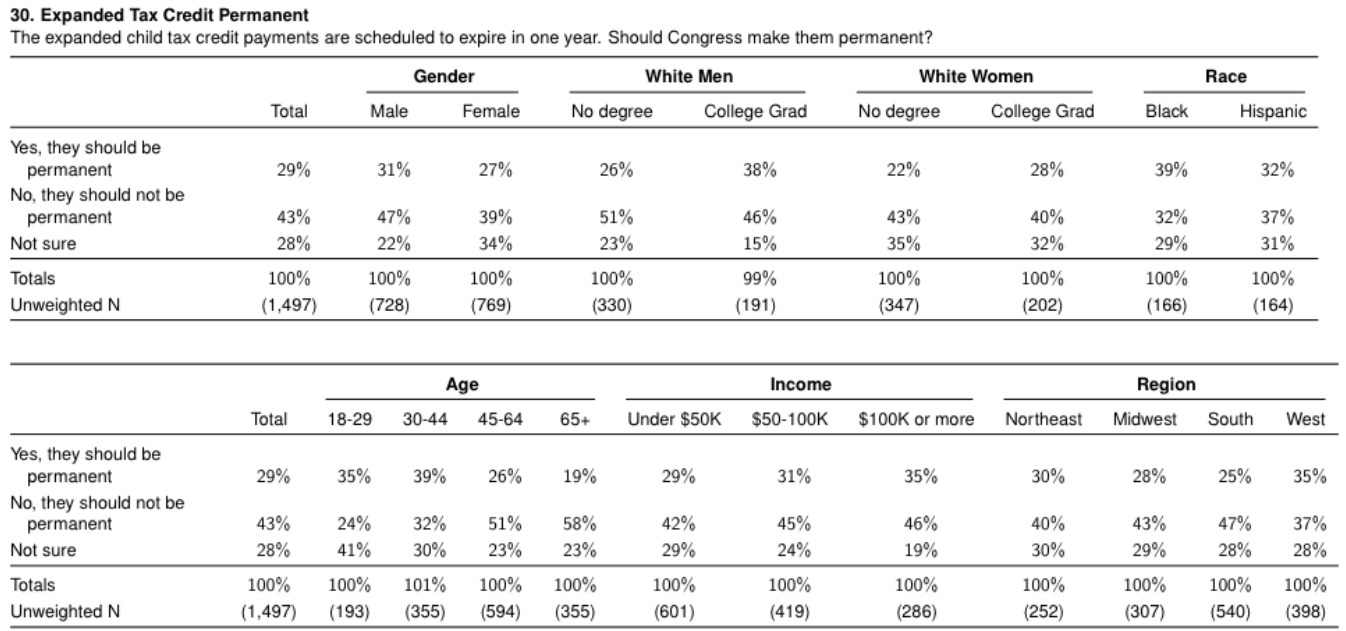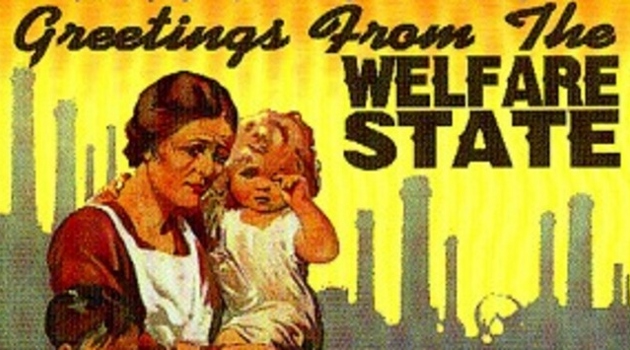Joe Biden wants to dramatically expand the welfare state (more than $5 trillion of new spending over the next 10 years).
In this discussion with Ross Kaminsky of KHOW in Denver, I warn that the President’s proposal for per-child handouts is an especially bad idea.
In part, my opposition to per-child handouts is motivated by a desire to protect the welfare reform law enacted in the 1990s.
As I noted in the interview, that reform reduced dependency and it reduced poverty. And Biden’s plan, for all intents and purposes, will repeal that law since it will be possible to get big chunks of money while not working, simply by having kids.
But since I’m a public finance economist, I’m also motivated by opposition to a massive new entitlement program.

At the risk of understatement, we don’t need to spend another $1.1 trillion when we can’t even afford all the programs that already are burdening taxpayers.
Others share my concern about the impact of Biden’s plan.
Matt Weidinger dissects per-child handouts in an article for National Review.
This year, parents don’t need to have paid taxes at all to collect an annual allowance of up to $3,600 per child. …According to the New York Times, “more than 93 percent of children — 69 million” will benefit from the new federal giveaway. …No work is expected from parents collecting them. That’s reminiscent of welfare programs before bipartisan 1996 reforms that required parents to work or attend training in order to receive government checks. In fact, the biggest beneficiaries of the new child allowance will be parents who earn less than $2,500 per year — including those who don’t work or pay taxes at all. …As explained in a 2019 report proposing child allowances in the U.S., the idea comes “from other countries.” …American policy-makers could merely be following suit. But it seems more likely that they’re just searching for a palatable way to package their current explosion of new spending, a spin on a return to the failed policies of the past: bigger benefits, for more people, funded by others’ tax dollars. After all, calling such payments “welfare” just wouldn’t do, would it?
David Henderson of the Hoover Institution also explains why Biden’s scheme is misguided.
Child allowances are a bad idea. It’s wrong to forcibly take money from some and give to others simply because they have children. Moreover, child allowances would create increased dependence, are not targeted at the needy, could reduce the work effort of lower-income women, and would add to the already huge federal budget… Scott Winship, the director of poverty studies at the American Enterprise Institute…worries that child allowances will undercut the successful welfare reform of the mid-1990s and thereby cause a substantial number of unmarried low-income mothers to stop working. …in the 1990s he thought welfare reform would increase child poverty and he now admits that he was wrong. He writes that in the United States, “Poverty among the children of single parents fell from 50 percent in the early 1980s to 15 percent today, with an especially sharp decline during the 1990s.” …the urgent need is to get federal spending under control. This means slowing the growth of Medicare, Medicaid, and Social Security, the three programs most responsible for the coming federal deficits. But it also means not adding major new programs.
By the way, Henderson’s column focuses on Mitt Romney’s plan, but his criticisms apply equally (actually, even more) to Biden’s proposal.
I’ll close with some encouraging polling data that was shared by G. Elliott Morris of the Economist.
Biden’s plan has only 29 percent support (versus 43 percent opposition).

I suspect that polling data would look even better if the pollsters had been honest and asked whether people favored expanded redistribution payments based on number of kids (“refundable” tax credits are simply spending that gets laundered through the tax code).
The bottom line is that the United States already has a big problem with government dependency. Per-child handouts will make a bad situation even worse.
P.S. Some advocates of the handouts say we need to copy Europe, but they never explain why “catching up” is a good idea when Europeans have much lower living standards.



